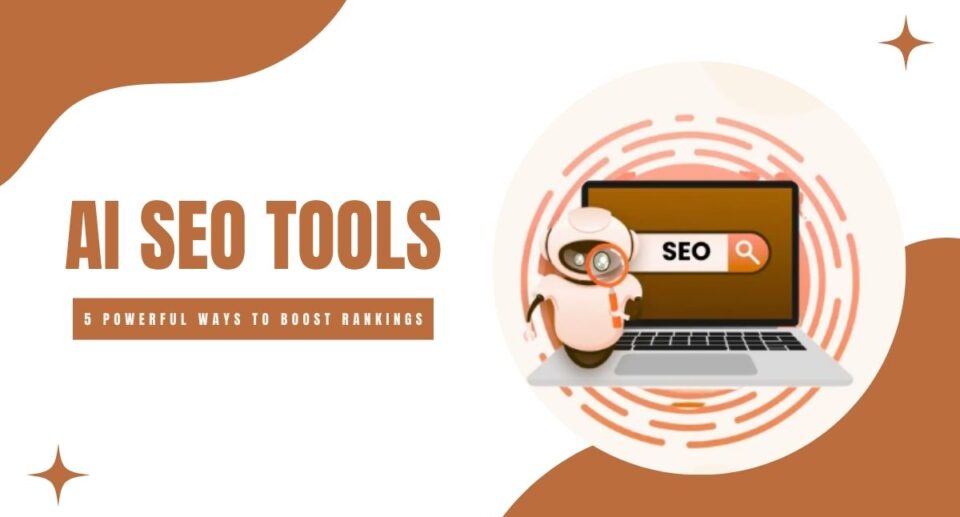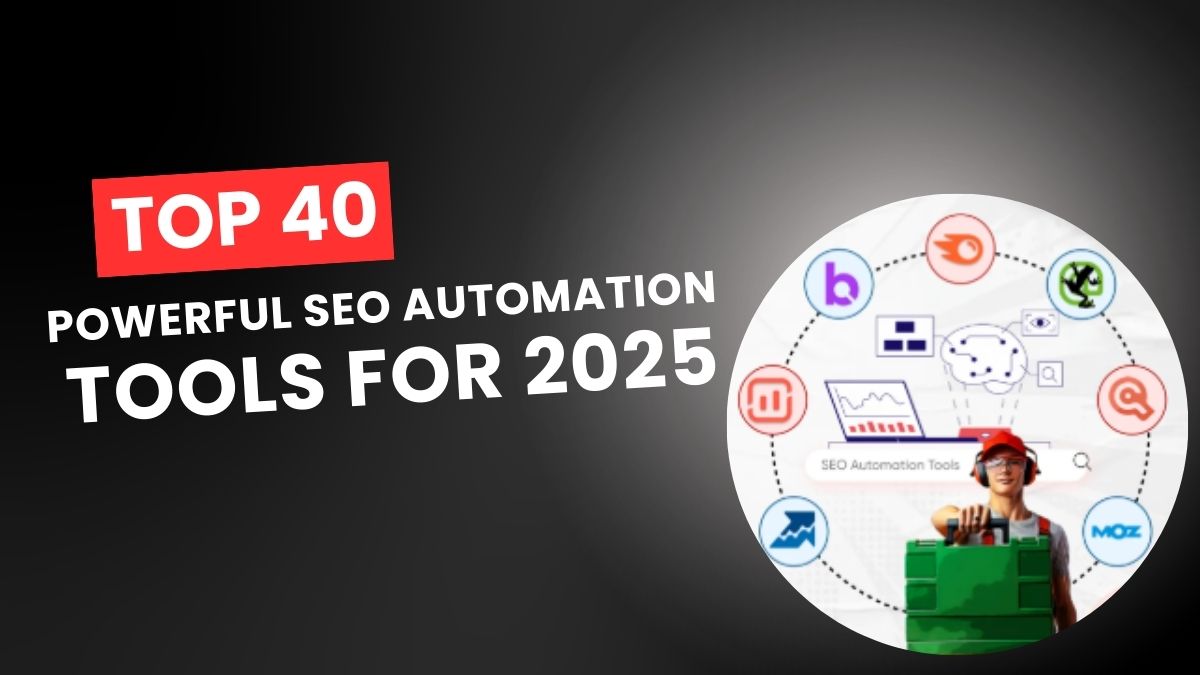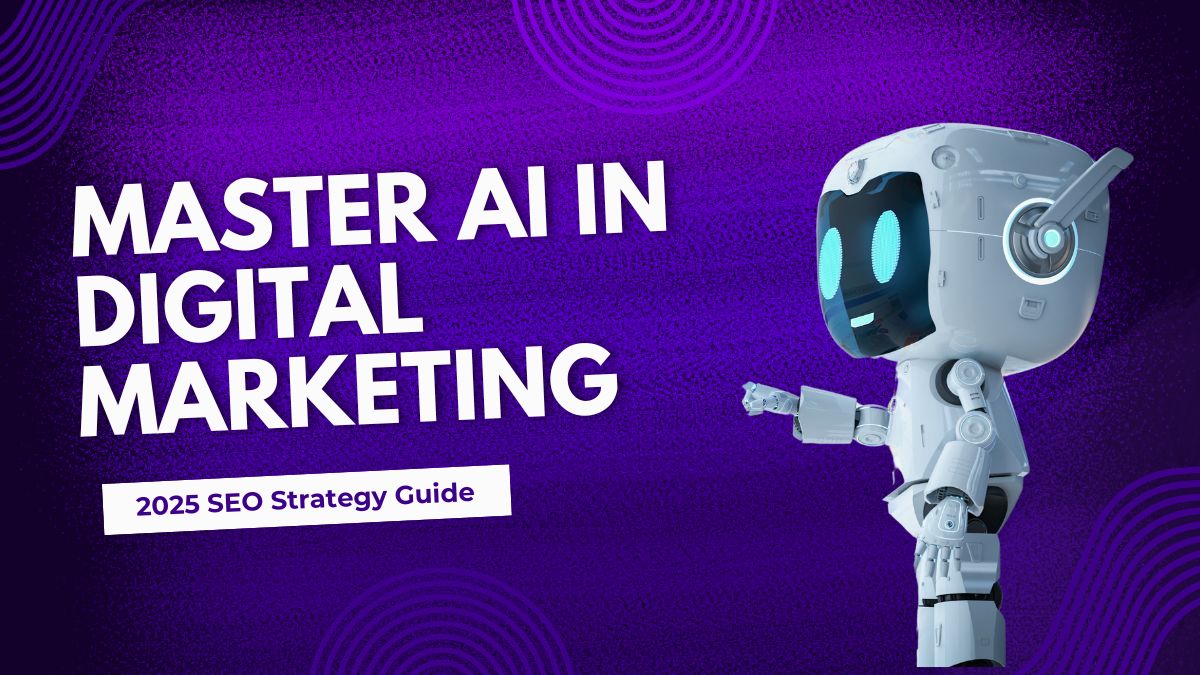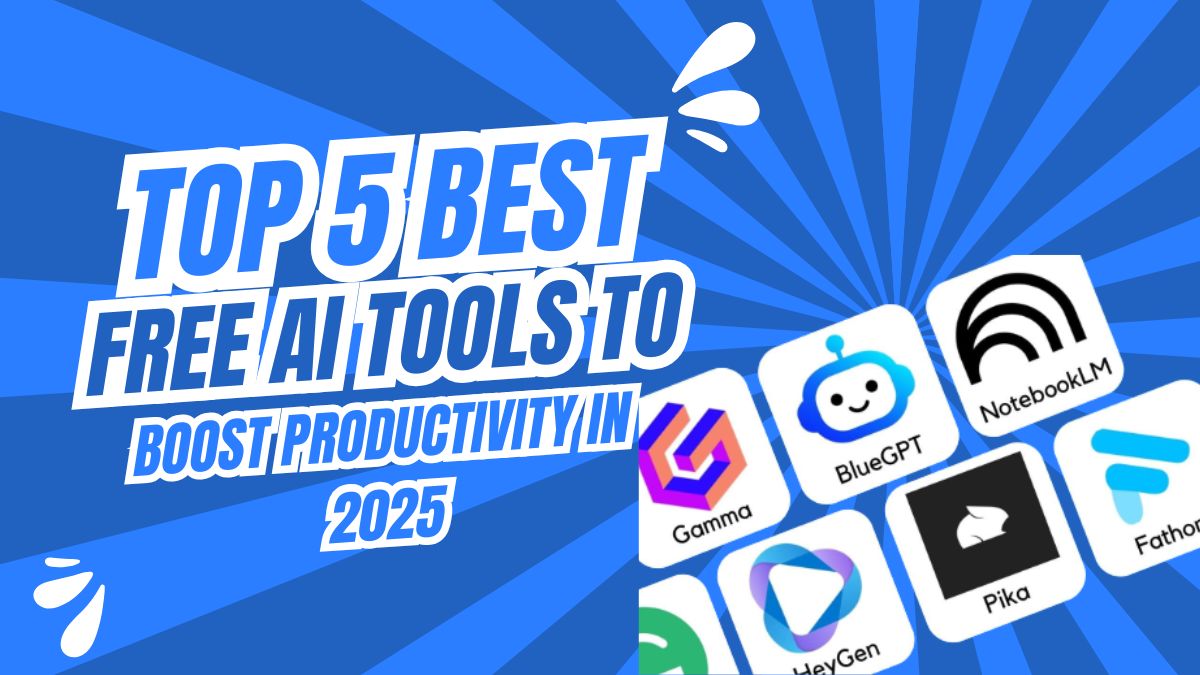AI SEO Tools: 5 Powerful Ways to Boost Rankings

INTRODUCTION
Have you noticed SEO feels… different lately? The old tricks—stuffing keywords, chasing backlinks, writing 10 posts on the same topic—just aren’t working like they used to. Welcome to the new era, where AI SEO tools are redefining how content is created, optimized, and ranked.
Search is no longer about keywords alone. Google and other engines are evolving to understand intent, context, and conversation. AI is powering both sides—how search engines understand content and how marketers produce it.
So, the question isn’t whether AI will change SEO. It already has. The real question is: are you adapting fast enough? This post will break down how AI is transforming SEO and what strategies and tools you need to stay competitive.
 Table of Contents
Table of Contents
Why AI Matters in Modern SEO
Search engines are no longer rule-based—they’re learning machines. Algorithms like Google RankBrain, BERT, and SGE (Search Generative Experience) use AI to analyze user intent, context, and behavior. The days of keyword stuffing are gone.
Analogy: Old SEO was like building a path with bricks (keywords). AI SEO is like paving a highway based on where people are already walking.
What This Means:
SEO is now intent-first
AI creates conversational search results
Search engines reward usefulness over word count
Voice search, zero-click results, and AI answers are rising
Stat: 64% of marketers believe AI will significantly impact SEO within the next two years (HubSpot Report).
Best AI SEO Tools You Should Be Using
AI is no longer optional. If you’re doing SEO manually in 2024, you’re already behind.
Here’s a curated list of the best AI SEO tools that save time, boost performance, and future-proof your strategy:
| Tool | Purpose | External Link |
|---|---|---|
| Surfer SEO | Content optimization, keyword analysis | https://surferseo.com |
| Jasper AI | AI content generation | https://www.jasper.ai |
| Frase | Topic clusters, outline builder | https://www.frase.io |
| NeuronWriter | NLP-driven content creation | https://neuronwriter.com |
| ChatGPT | Prompts, outlines, ideation | https://chat.openai.com |
| Clearscope | High-precision content grading | https://www.clearscope.io |
Pro Tip: Start with Frase or SurferSEO for optimization and ChatGPT for ideation and drafting.
Smart Strategies to Succeed with AI in SEO
You don’t need to replace your entire process overnight. But you do need to shift your mindset from keywords → user intent and helpful content.
 H3: Strategy 1 — Build Around Intent, Not Just Keywords
H3: Strategy 1 — Build Around Intent, Not Just Keywords
Old: “Best smartphones 2024”
AI-Ready: “Which smartphone is best for photography and long battery life?”
AI rewards specific, nuanced content that solves real queries.
H3: Strategy 2 — Use AI to Automate Research
Use AI SEO tools to:
Find keyword clusters
Analyze SERPs
Spot content gaps
Summarize competitor articles
H3: Strategy 3 — Focus on Entity SEO
Google is becoming more semantic. It connects entities (people, places, things) instead of relying on exact matches.
Use structured data and semantically rich language to build topical authority.
AI Content Creation Tips That Work
Creating helpful content is still king. But with AI, you can create more of it—smarter and faster.
Tip 1: Don’t Copy-Paste AI
Always edit, fact-check, and add human insight. AI writes; you refine.
Tip 2: Use Prompt Engineering
Ask better prompts like:
“Write a comparison between SurferSEO and Frase for e-commerce SEO with pros and cons.”
Not just:
“Write about SurferSEO.”
Tip 3: Repurpose with AI
Turn one blog post into:
Social media captions
Video scripts
FAQs
LinkedIn carousels
All with ChatGPT.
Real Example:
Before AI: I spent 4 hours researching, drafting, and editing a blog.
With AI:
ChatGPT did the outline in 3 mins
Frase helped optimize on-page SEO
Grammarly cleaned up the grammar
Total time: 1.5 hours. 2.5 hours saved.
 How to Measure SEO Success in the AI Era
How to Measure SEO Success in the AI Era
Metrics haven’t changed—but your strategy to influence them has.
Track These KPIs:
Organic traffic via Google Analytics
Click-through rate (CTR) and impressions via Google Search Console
Average time on page (shows content engagement)
Keyword rankings via Ahrefs, Ubersuggest, or Surfer
📊 Example: A client used Surfer + ChatGPT for 6 blogs/month. In 3 months, impressions grew by 178%, and average time on site doubled.
FAQs
1. What are AI SEO tools?
They’re platforms that use artificial intelligence to automate and improve SEO tasks—like keyword research, content optimization, or SERP analysis.
2. Will AI replace SEO professionals?
Not exactly. It replaces repetitive tasks but still needs human creativity, strategy, and critical thinking.
3. Which is the best ai seo tool for beginners?
Start with Frase or ChatGPT. They’re easy to use and incredibly versatile.
4. Can I trust AI-generated SEO content?
Partially. Use AI for drafting and structuring, but always review and personalize the content.
5. How does Google treat AI content?
Google doesn’t penalize AI content—as long as it’s helpful, accurate, and adds value to users.
Conclusion
AI isn’t the future of SEO—it’s already the present. From smarter search engines to more efficient content creation, AI SEO tools are changing the way we approach digital visibility. Those who adapt fast will win big. Those who don’t? Will get buried in the SERPs.
“Adapt or get buried. SEO in the AI era rewards those who create content for humans, optimized by machines.”
Call to Action 1: Start experimenting with one AI SEO tool today—see how it changes your workflow.
Call to Action 2: Share this post with your team or clients who need a wake-up call about AI-driven SEO.

 Table of Contents
Table of Contents
 H3: Strategy 1 — Build Around Intent, Not Just Keywords
H3: Strategy 1 — Build Around Intent, Not Just Keywords
 How to Measure SEO Success in the AI Era
How to Measure SEO Success in the AI Era



